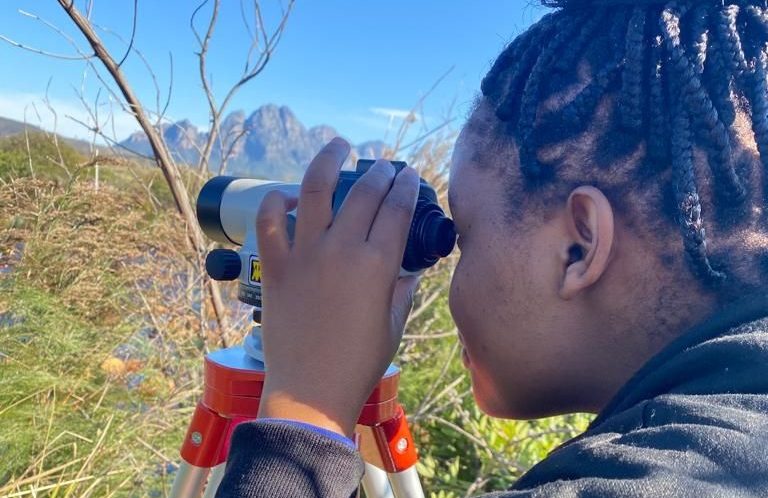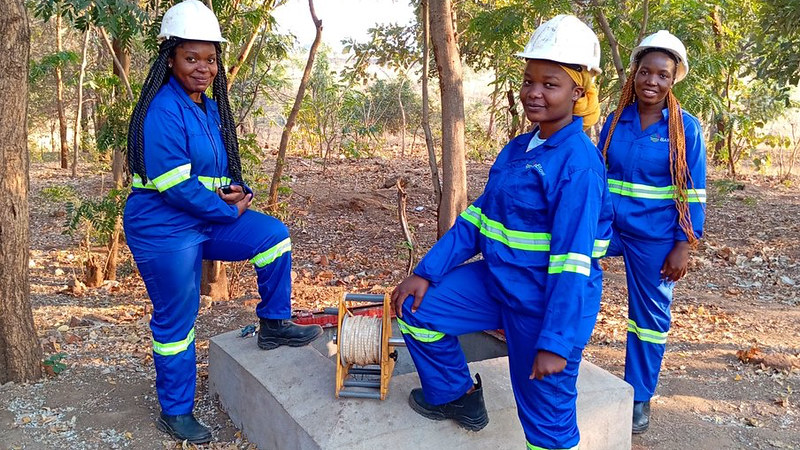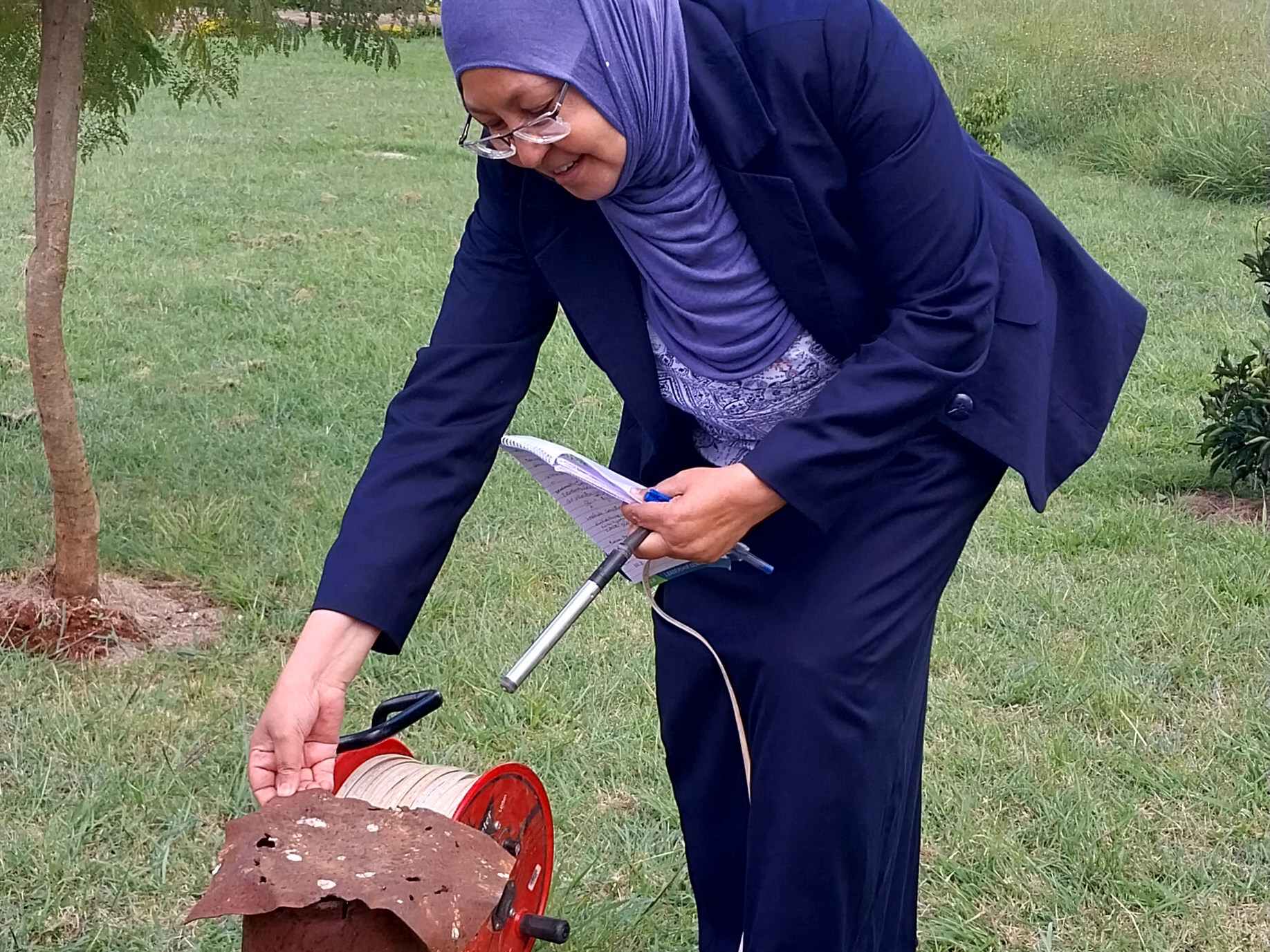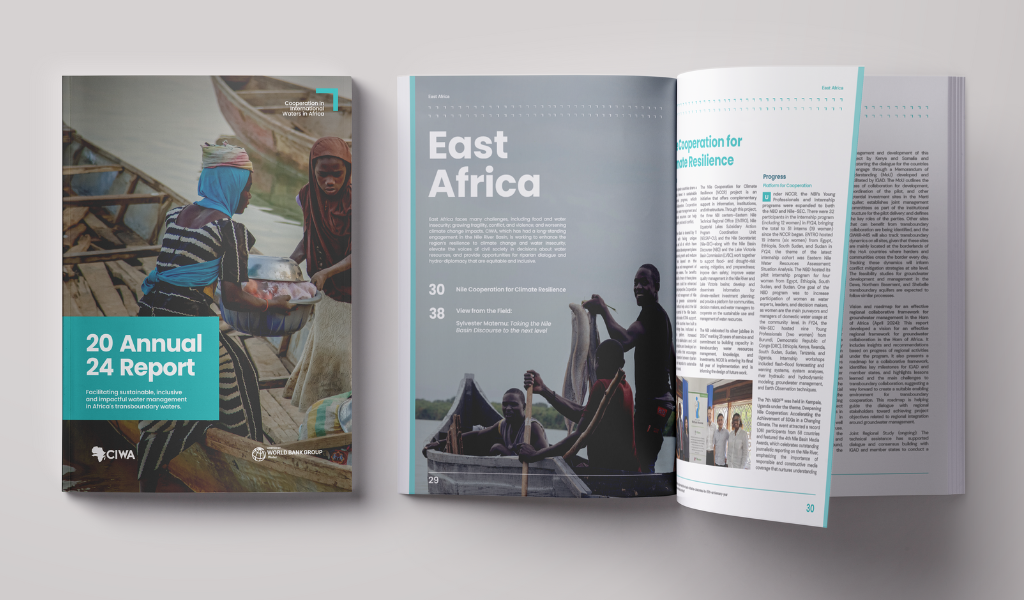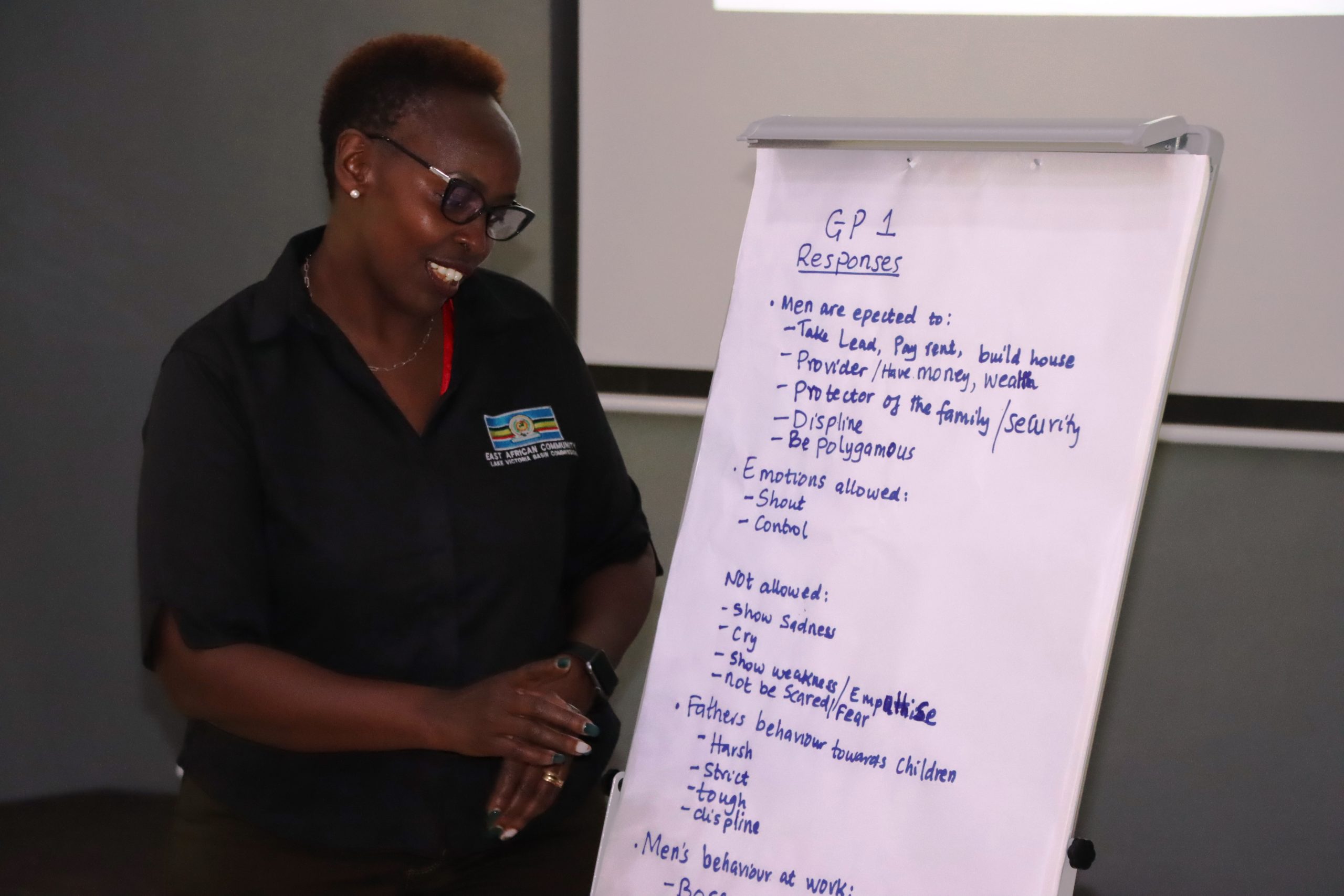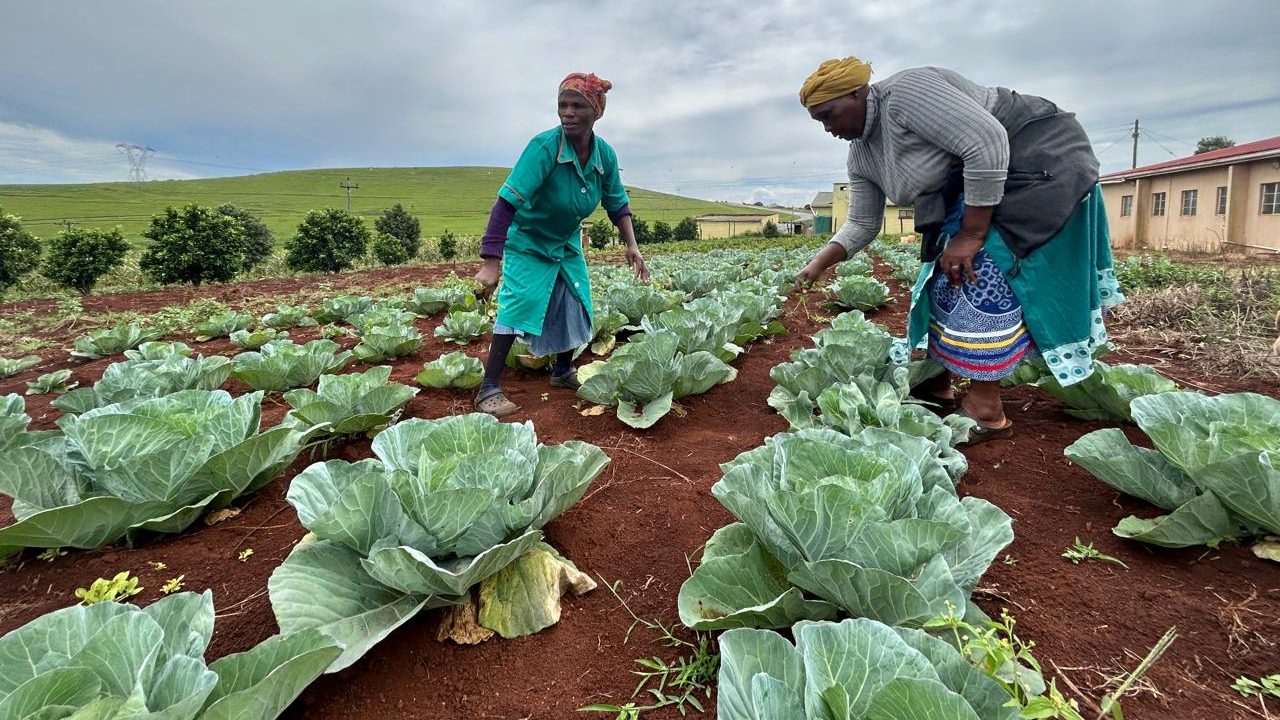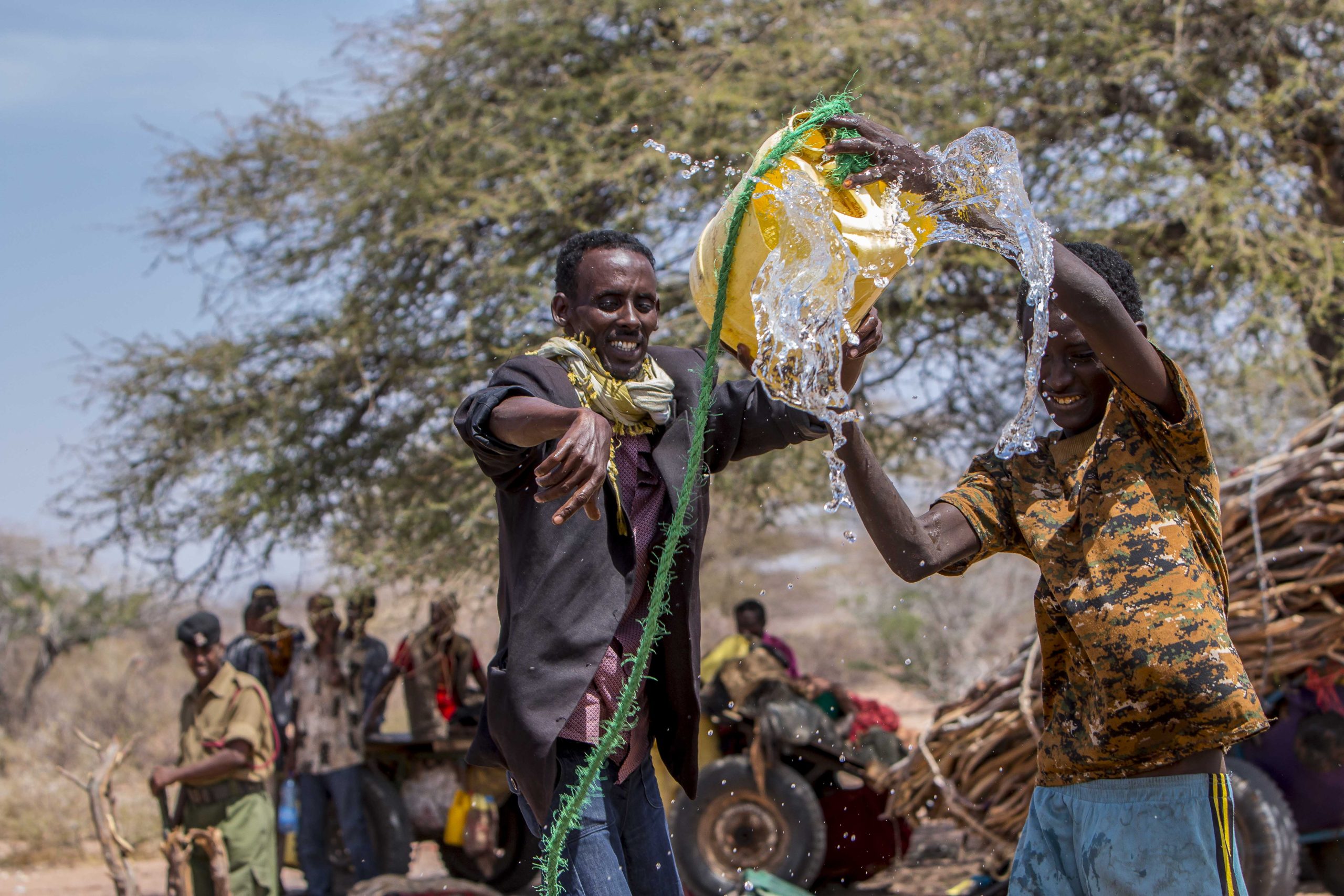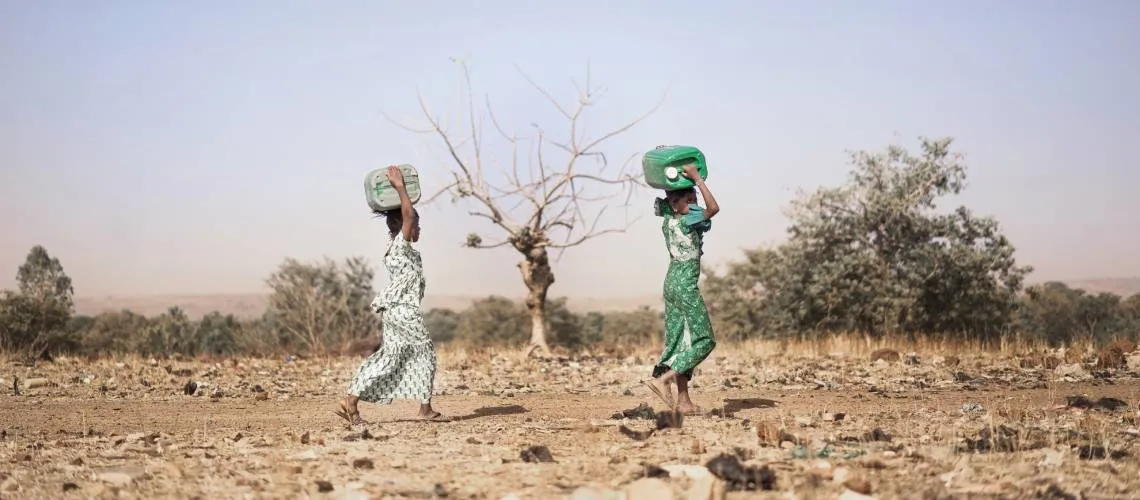Researching the effects of groundwater-dependent invasive species in South Africa
Posted in : A View From The Field on 7 April 2025
In South-Africa, a water-stressed country, some species pose risks to groundwater-dependent ecosystem services and groundwater conservation. Read the story of Mmasechaba Lebogang Moropane whose work is to detect and map the extent of invasive species that rely on groundwater in the Heuningnes Catchment in the Western Cape province.
Making Africa’s Water Workplaces Welcoming for Women
Posted in : Blog on 5 March 2025
As the world prepares to celebrate International Women’s Day on March 8, with a call to collectively #AccelerateAction, the World Bank’s Cooperation in International Waters in Africa (CIWA) is more committed than ever to transforming transboundary water resources organizations into more equitable, diverse, and inclusive workplaces.
Calming conflict through groundwater resilience
Posted in : Blog on 18 January 2025
Igbal Salah, a hydrologist at IGAD, is doing her part to minimize conflict in the borderlands of the HoA by working with CIWA on its Untapping Resilience: Groundwater Management and Learning in the Horn of Africa’s Borderlands initiative and the related World Bank GW4R program. Read the latest CIWA blog on Horn of Africa.
Going Beyond Water: CIWA Program Unveils 2024 Annual Report
Posted in : Blog on 13 December 2024
This year, the Annual Report 2024 is available in flipbook version. The Cooperation in International Waters in Africa (CIWA) Partnership worked diligently and successfully in the 2023-2024 fiscal year to address mounting challenges including climate change, conflict, and instability across Sub-Saharan Africa. There was a civil war in Sudan. A coup in Niger. Conflicts in […]
Namibia: Bridging the Gender Gap in Groundwater Resources Management
Posted in : Blog on 20 November 2024
In the field of groundwater resources management, a pressing question often emerges: are we truly equipping women with the necessary tools and opportunities to thrive, or are we simply attempting to plug the gender gap without tackling the root causes of gender inequality and discrimination? Despite considerable progress in gender equality across various sectors, including […]
Promoting a Gender-transformative Approach in the Transboundary Water Sector
Posted in : Blog on 16 July 2024
Focus on trainings conducted by the CIWA Program on how to foster gender-transformative approaches in the male-dominated transboundary water management sector.
Mfundo Macanda: Developing climate- smart agriculture in the Eastern Cape
Posted in : Blog on 15 May 2024
To develop inclusive and sustainable agriculture, the Eastern Cape Provincial Government turned to the World Bank and SADRI, a CIWA technical assistance that addressed cross- border drought risks, improved cooperation, and created a holistic vision of drought-risk management throughout Southern Africa.
Digging deep: Groundwater in the Horn of Africa’s fragile borderlands
Posted in : Blog on 21 March 2024
In the conflict-prone borderlands of Ethiopia, Kenya, Somalia, and South Sudan, The Horn of Africa Groundwater for Resilience Project is an ambitious operation to increase information on aquifers and the countries’ capacity to manage them and to develop water service delivery infrastructure to enhance drought resilience of vulnerable populations.
Innovation at at Time of Unprecedented Challenges: World Water Week 2023
Posted in : Videos on 21 September 2023
Every year, water experts, policymakers, and stakeholders meet in Stockholm to discuss topics such as water management, climate change, and sustainable development, aiming to accelerate action towards achieving water security and resilience. This year’s topic focused on innovation at a time of unprecedented challenges, aiming to rethink how we manage water.
Building regional drought resilience is a marathon, not a sprint: Lessons from Southern Africa
Posted in : Blog on 13 September 2023
The cross-sectoral approach to drought analytical work embodied by the Southern Africa Drought Resilience Initiative technical support program – SADRI – provides a new model for engagement in Southern Africa and regions beyond.



